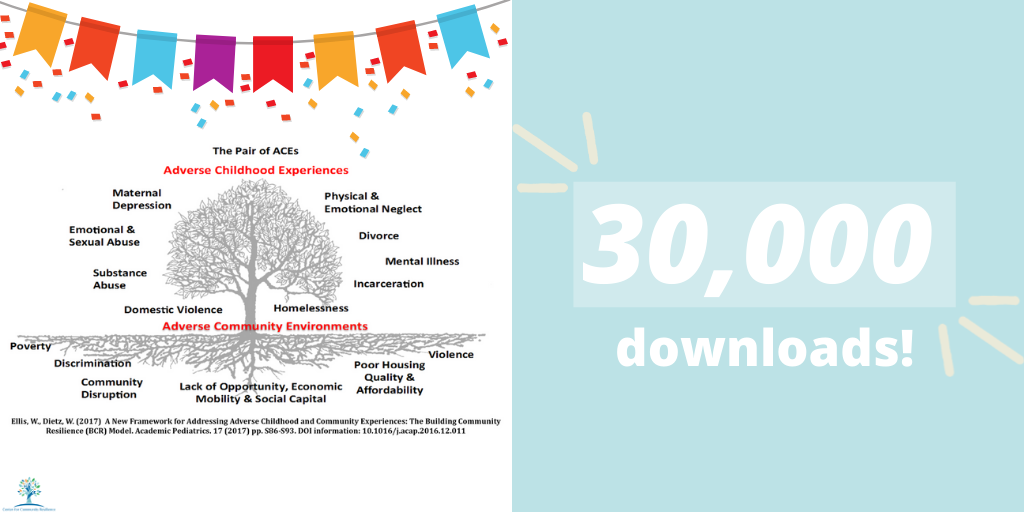Five years ago, the Building Community Resilience initiative (part of the Redstone Global Center at the Milken Institute School of Public Health) was started to help address one of the most sweeping public health challenges of our times: Adverse Childhood Experiences (ACEs). ACEs are recognized in clinical, educational and social service settings as having negative outcomes and impacting a person’s wellbeing and health throughout their life.
To help public health practitioners, policymakers, community leaders and individuals better understand the causes of ACEs, Dr. Wendy Ellis created the Pair of ACEs tree. This tree illustrates the adversities that must be addressed to build and support resilient communities and families. The leaves on the tree represent adverse childhood experiences (ACEs). The tree is planted in poor soil – adverse community environments (ACEs) – that is steeped in systemic inequities, robbing it of nutrients necessary to support a thriving community.
As of April 16, 2020, the Pair of ACEs has been downloaded more than 30,000 times. As the Center for Community Resilience welcomes new partners and networks, this critical resource will continue to support the work of coalitions across the country to build a more resilient nation. Be the next to download the tree at www.go.gwu.edu/BCRPairofACEsTree.
As a continuation of the Pair of ACEs tree, the Center has developed a new version to illustrate the drivers of inequity that have been highlighted in response to the outbreak of COVID-19. More resources from our networks of community partners to address the pandemic can be found at ccr.publichealth.gwu.edu/covid-19.



